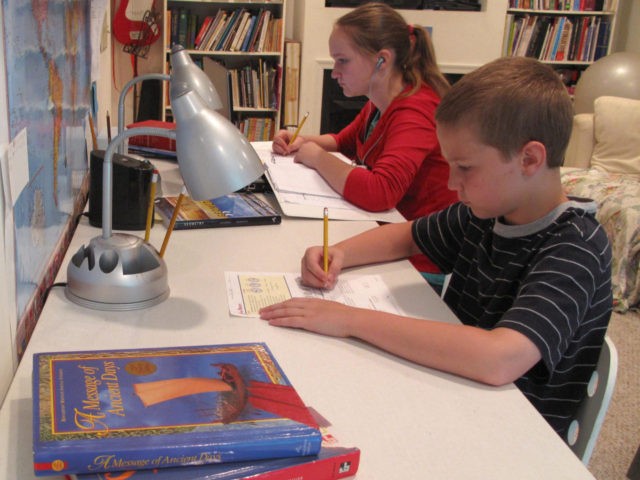
The Cuban communist regime sentenced Evangelical Pastor Ramón Rigal to two years in prison – and his wife Ayda Expósito to a year and half – on Monday for homeschooling their children, less than a week after their arrest for promoting the practice.
“The family … were given 30 minutes notice before the trial began on 18 April, and went on throughout the afternoon but was then suspended until Monday 22 April,” the aid group Christian Solidarity Worldwide said in a report on their story this week.
Homeschooling is illegal in Cuba, as it is considered a “capitalist” practice and prevents the state from indoctrinating children in Marxist atheism in public schools. Rigal has been homeschooling his children for years, forcing him into consistent confrontations with the Castro regime, and began helping other Christian families homeschool following his arrest in 2017.
The couple, from Guantánamo, faced a summary judgment on their case on Monday, according to the Miami-based Radio Martí. The presiding judge found them guilty of “illicit assembly and incitement to delinquency” for meeting with other families to teach them how to homeschool and “acts contrary to the normal development of minors.”
Martí and Diario de Cuba, a Spanish newspaper, both reported that Cuban state security aggressively prevented friends and family from attending the sentencing. Their oldest daughter, 13-year-old Ruth, confirmed to both outlets that police blocked her from entering the courthouse.
“That was embarrassing, it is shameful what they have done with our parents,” Ruth told Martí. “They took my mother and my father to prison and did not think of the kids, of us, that we are minors, that we need our mother and our father together.”
The court also blocked independent attorney and journalist Roberto de Jesús Quiñones Haces from attending the sentencing. Media covering the story do not agree on whether Quiñones meant to attend in his capacity as lawyer for the family or to report on what happened in the courthouse. What they do agree on is that state security violently assaulted Quiñones to keep him out of the building.
“They punched me in the mouth, my shirt is bloody, and I am detained here now, I don’t know why,” Quiñones told Martí reporter Tomás Cardoso briefly before police confiscated his phone. At press time the lawyer remains in police custody.
The Rigal Espósito family has a right of appeal, though dissidents rarely have their sentences overturned without significant international pressure. Global outrage is precisely what saved them following their initial decision to homeschool in 2017, using a system sent to them in CD and print form by a Christian school in Guatemala. At the time, the government revoked Rigal’s ability to preach as a pastor and sentenced him to a year of hard labor; Espósito received a one-year house arrest sentence.
Rigal described his sentence as “humiliating” while serving it but told Martí in 2017 the Christian faith warns of such punishment by repressors.
“You feel ashamed because they want to humble us, but that is the legacy that the Lord left us: that because of our faith and our principles we will suffer this,” he said.
The government ultimately released the couple and restored Rigal’s ability to legally preach thanks to global pressure from Christian aid organizations on the condition that Rigal and Espósito stop homeschooling and do not expose others to the practice. The two refused and taught several other families at Rigal’s church how to homeschool their children.
Following the first arrest, the family decided to flee the country, but the Castro regime has refused them permission, treating them as criminals instead.
The Home School Legal Defense Association (HSLDA) said in a post on their website last week that it had purchased plane tickets to bring the family to the United States after Cuban government agents urged Rigal to leave. As they prepared their departure, however, Rigal told the HSLDA that regime officials demanded he condemn the fellow Christians he shared his homeschooling materials with. Since Rigal refused, he and his wife were arrested.
The Marxist Castro regime regularly represses Christian dissidents, particularly Protestant and Evangelical groups that operate in a more decentralized, and thus harder to control, manner than Catholic associations. In the 1960s, Fidel Castro build labor camps known as Military Units to Aid Production (UMAP) to house Jehovah’s Witnesses and Seventh-Day Adventists alongside other “counter-revolutionaries” such as LGBT Cubans, writers, and other creatives. Today, Cuban police arrest the Catholic members of the Ladies in White dissident group, often violently, on a weekly basis for attempting to attend Sunday Mass, the group’s sole act of protest.
Rigal and Espósito were arrested during Holy Week which culminates in Easter, the most important holiday in the Christian calendar.
via Breitbart News
Enjoy this article? Read the full version at the authors website: https://www.breitbart.com
